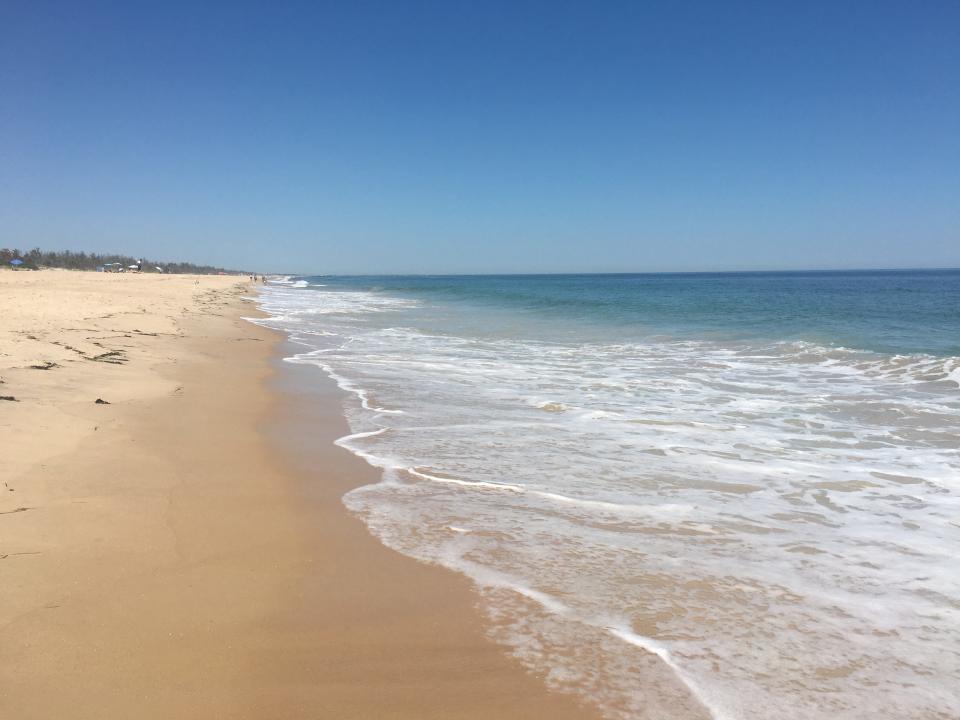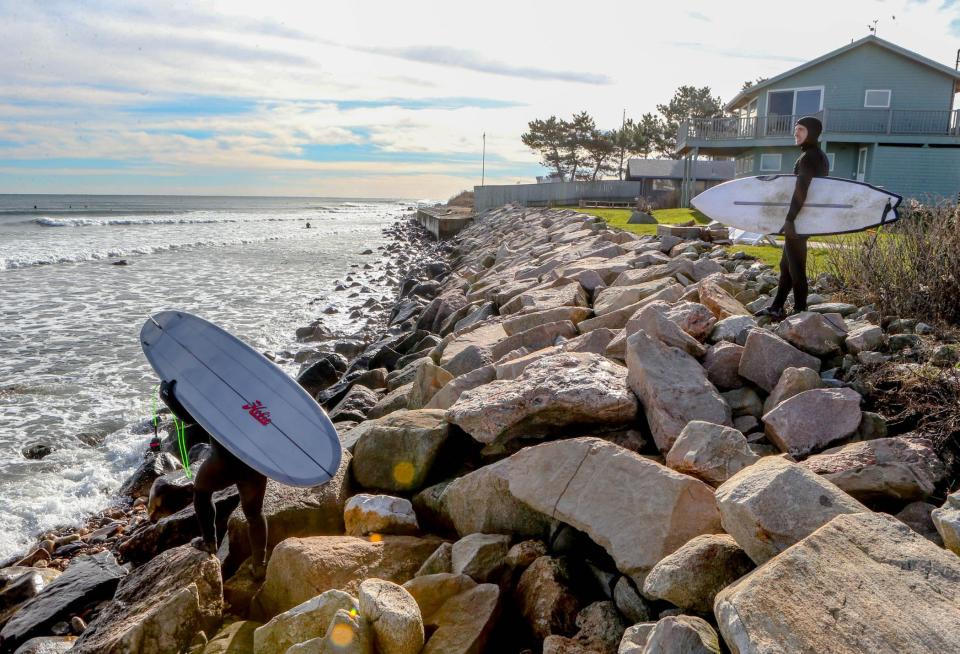'Get off my sand?': Coastal homeowners sue over shoreline law, but state is prepared to fight
Coastal property owners have filed a federal lawsuit to overturn Rhode Island's new shoreline-access law. The suit claims that the new legislation, which allows the public to use the shoreline up to 10 feet inland of the seaweed line, amounts to an unconstitutional taking under the Fifth Amendment. It comes as little surprise: Opponents of the new law, some whom are involved with the suit, had made clear that they intended to challenge it in court.
"While public beach access may be important to state legislators and officials, they may not simply redefine private shorelands as a 'public beach' by the stroke of a pen, consistent with the Takings Clause of the Fifth Amendment," the complaint argues.

Who's behind the lawsuit?
The suit was filed on Friday by Rhode Island Association of Coastal Taxpayers (RIACT), a relatively new organization that is described in the complaint as "a group of people who own beachfront property and hold private property rights along Rhode Island’s Atlantic coastline."
The group includes people who do not have waterfront properties of their own but belong to fire districts or homeowners' associations that own or control beachfront property, the complaint says.
Records from the Secretary of State's Office show that the group was incorporated May 17, as the bill was making its way through the legislature.
More on shoreline access: General Assembly widens shoreline access. What it means for you.
The lawsuit lists J. David Breemer and Jeremy Talcott of the libertarian Pacific Legal Foundation as attorneys for the plaintiffs. The California-based foundation has represented property owners in shoreline access disputes in a number of other states, including Indiana, Texas and North Carolina. According to a news release, they are providing their services free of charge.
Locally, the plaintiffs are represented by Daniel J. Procaccini of Adler Pollock & Sheehan P.C., who had testified against the bill in committee hearings. Procaccini previously authored a legal brief outlining the arguments against the legislation on behalf of a different group with a similar objective, Shoreline Taxpayers for Respectful Traverse, Environmental Responsibility and Safety.

Why property owners are suing over the new law
Before the new legislation went into effect, Rhode Island law provided no guidance about how much of the shoreline could be considered private property and how much was open for the public to exercise its constitutional right to the shoreline.
Instead, officials typically relied on a court ruling from the 1980s, which used the mean high water mark as the boundary. Defining that mark is a highly technical undertaking, and to make matters impractical, it's sometimes underwater.
By establishing a different boundary, the new law "suddenly and dramatically altered Rhode Island’s common law related to beach property boundaries, with the effect of extending the public beach into traditionally private areas," and diminishes property values, RIACT's complaint alleges.
Many of RIACT's members own beachfront homes whose title extends to the mean high water line, according the lawsuit. The complaint cites RIACT President David Welch, who "owns a small home on beachfront property in the Charlestown area of Rhode Island," as one such example.
The title to Welch's property extends to the mean high water line, according to the lawsuit. But the portion of his land between that line and the 10-foot line "is now subject to public beach use," the complaint states.
"For many RIACT members, the act’s creation of a public beach 10 feet inland of the seaweed line allows the public to access and occupy their private, residential 'backyard' areas and opens their residential life to the constant presence of strangers, destroying privacy and raising safety concerns," the lawsuit says.
It goes on to add: "RIACT beachfront property owners purchased their residentially developed coastal property with the understanding, right, and expectation of using their property for private, exclusive use, including for private family beach gatherings."
Attorney General Peter Neronha, who is named as a defendant, along with the Department of Environmental Management and the Coastal Resources Management Council, signaled on Twitter that he was prepared to fight the lawsuit.
"'Get off my sand'? Please," he wrote, adding, "We’re ready."
"The attorney general is grateful that the General Assembly recognized Rhode Islanders’ constitutional rights to shoreline access and further codified that right into state law," spokesman Brian Hodge said. "We are still reviewing today’s filed lawsuit, but the office stands ready to defend the law."
RIACT is seeking an injunction that would prevent the new law from being enforced while litigation is pending. But for now, the law remains in effect.
This article originally appeared on The Providence Journal: Coastal homeowners group sues to stop RI's new shoreline access law

